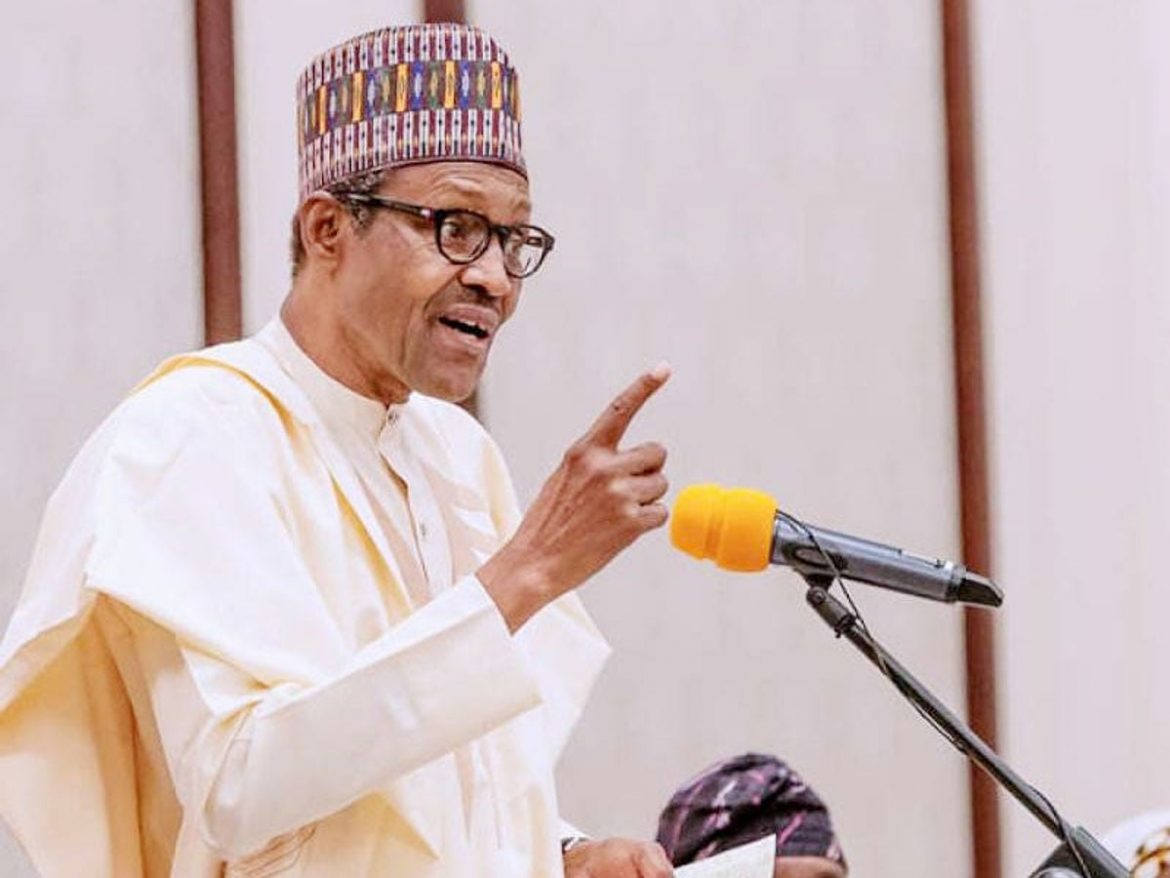Communications and Digital Economy to work with all relevant government
agencies to ensure full protection of critical national infrastructure.The President issued the directive at the unveiling of the National
Broadband Plan 2020–2025, commissioning of the Communications and
Digital Economy complex, flag-off of the Digital Innovation and
Entrepreneurship Training and launching of the Abuja Emergency
Communication Centre and the National Emergency Toll-Free Number 112.
The President also urged mobile network operators to ensure full
attainment of the targets set in the National Broadband Plan by giving
special attention to un-served and underserved areas while deploying
their services.
President Buhari expressed concern about the challenges faced by
operators in the country, particularly vandalism of telecommunications
equipment.
He assured the operators of government’s commitment to ensuring that all
stakeholders have a conducive environment to ensure the successful
implementation of the Broadband Plan, which seeks to boost broadband
penetration as well as support the deployment of 4G across the country.
On the newly commissioned Emergency Communications Centre and Toll Free
Number 112, the President explained that it further demonstrates his
administration’s resolve to keep Nigerians safe.
”We have taken advantage of digital technologies to ensure that
Nigerians in distress are only a dial away from the relevant emergency
response institutions in the country.
”This will go a long way in supporting our efforts to improve the
security of lives and property,” he said.
On the Digital Nigeria Programme, President Buhari explained that it is
one of Federal Government’s key initiatives to empower innovators and
entrepreneurs with skills required to thrive in the emerging digital
economy.
” It is part of our efforts to ensure that our youths, women,
unemployed graduates and people living with disabilities either become
employers of labour or get a large number of well-paying jobs thereby
contributing to the national drive of lifting Nigerians out of
poverty,” he said.
Similarly, President Buhari declared that the newly commissioned
Communications and Digital Economy Complex will provide a befitting
coordinating centre for the new focus on the Nigerian Digital Economy.
”It signals the desire to intensify efforts towards ensuring that
Nigeria becomes an active participant in the Global Digital Economy,”
he said.
Earlier, the President acknowledged that the dwindling price of crude
oil had adversely affected budgetary projections and increased the sense
of urgency to diversify the economy.
He, however, expressed delight that the projects commissioned would
enhance the development of the National Digital Economy and support
efforts at diversifying the economy.
According to President Buhari ” The Digital Economy will also support
us in fighting corruption through digitalization and enabling government
digital services.
”Digital technologies have become a useful platform for economic
diversification. Having recognized the benefits of these technologies we
have decided to adopt the Digital Economy paradigm early,” he said.
The President also commended the Minister of Communications and Digital
Economy, the Nigerian Communications Commission (NCC), the Presidential
Committee and all stakeholders who participated in the development of
the National Broadband Plan, lauding the leadership of the Ministry for
the high level of synergy amongst the parastatals under its supervision.
In his remarks, the Minister of Communications and Digital Economy, Dr
Isa Ali Ibrahim Pantami said broadband penetration is key to reviving
the Nigerian economy.
Citing reports from the World Bank and the World Economic Forum, the
Minister said 10 per cent broadband penetration in any country will
improve its GDP by at least 4.6 per cent.
With coronavirus spreading across the globe and more people living in
isolation, the minister said the digital and information communication
sector is providing alternatives for people to stay in touch and
institutions to provide the needed basic life-saving services to the
populace.
On his part, the Executive Vice Chairman of the NCC, Prof Umar Danbatta
announced that the country’s broadband penetration had increased to 38.5
per cent.
”As at the time this government came into power in 2015, broadband
penetration was hovering between 4 and 6 per cent. Broadband penetration
has now reached 38.5 per cent, ” he said.
Danbatta explained that the Digital Complex building accommodates the
office of the Minister, permanent secretary of the Ministry and four
departments of the Commission.
He added that the 5-storey building with two basement floors sit on 8
hectares of land at the Mbora district, Abuja and is equipped with
modern telecommunications facility, a crèche for nursing mothers,
gymnasium, among others.



